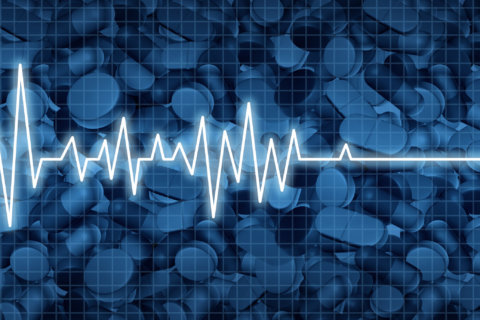The in-depth conversation explored ways in which federal policy makers, local law enforcement officials, addiction specialists and other experts can work in tandem to respond to the problem and help stem the tide of devastation.
From densely populated cities to quiet rural towns, the opioid epidemic has ballooned into a daunting national crisis with shocking consequences. More than 174 Americans die every day from overdoses, two-thirds of them due to opioids, and public health emergencies have been declared in several states including Maryland and Virginia.
As dealers mix heroin with increasingly powerful substances such as fentanyl, the death toll continues to climb relentlessly, and communities around the country are searching for answers.
To examine the opioid crisis, and highlight efforts to combat the worsening situation, WTOP hosted a comprehensive panel discussion featuring leaders from around the D.C. metro area.
The in-depth conversation explored ways in which federal policy makers, local law enforcement officials, addiction specialists and other experts can work in tandem to respond to the problem and help stem the tide of devastation.
Trends in the Opioid Crisis
When a product is killing people, other people suffering in the cycle of addiction flock to that product because they actually have a hope of getting high again instead of just keeping themselves from getting sick. It is a perverse consequence of the cycle of addiction.
Tim Altomare
Police Chief, Anne Arundel County Police Department
Pain Management Alternatives
Most of the pills that we see inappropriately used come from acute pain. Sometimes those prescriptions are much too large and people end up with many left over that they share with family and friends. That's often the root of this problem, when there are just too many pills sitting in medicine cabinets able to be diverted to others.
Dr. Wilson Compton
Deputy Director, National Institute on Drug Abuse
Innovation
We have to really change how we respond after a nonfatal overdose. How do we use that as an opportunity to engage treatment in the ambulance, with the police officer or with the emergency department physician? That has to be our highest priority.
Jessica Hulsey Nickel
President and CEO, Addiction Policy Forum












